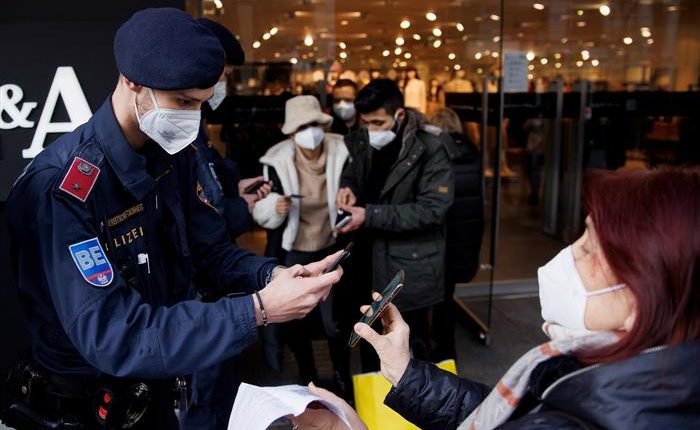Europe over the weekend was rocked with anti-covid19 vaccination demonstrations, with some major capitals and cities experiencing violent clashes.
Thousands of protesters gathered in Vienna on Saturday after the Austrian government announced a nationwide lockdown to contain the quickly rising coronavirus infections in the country.
The far-right opposition Freedom Party was among those who have called for the protest and vowed to combat the new restrictions.
Demonstrations against virus measures also took place in Rome and were planned in Switzerland, Croatia and Italy.
Meanwhile, hundreds of protesters gathered in Rome’s Circo Massimo on Saturday to demonstrate against COVID-19 vaccinations.
People were also protesting the use of the Green Pass, which is proof of COVID-19 vaccination.
Tens of thousands of people have been marching in the Belgian capital, Brussels, to protest against anti-Covid measures.
Some protesters threw fireworks at police officers, who intervened with tear gas and water cannon.
Demonstrators are mainly opposed to the use of Covid passes, which stops the unvaccinated from entering venues such as restaurants or bars.
On Friday night, Dutch police opened fire on protesters and seven people were injured in rioting that erupted in downtown Rotterdam around a demonstration against COVID-19 restrictions.
In Belgium, rules on face masks have been tightened, including in places such as restaurants where Covid passes are already required, and most Belgians will also have to work from home four days a week until mid-December. There are also plans to make vaccinations for health workers compulsory.
The Austrian lockdown will start early Monday and initially will last for 10 days, and will then be reevaluated.
At the most it will last 20 days. Most stores will close, and cultural events will be canceled. People will be able to leave their homes only for certain specific reasons, including buying groceries, going to the doctor or exercising.
Earlier, the World Health Organization (WHO) said it was “very worried” about rising coronavirus cases on the continent.
By:Isaac Clottey





